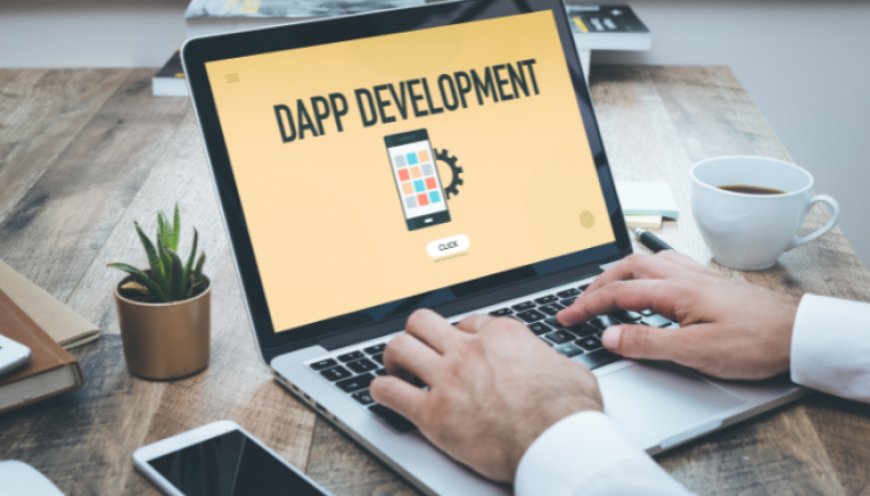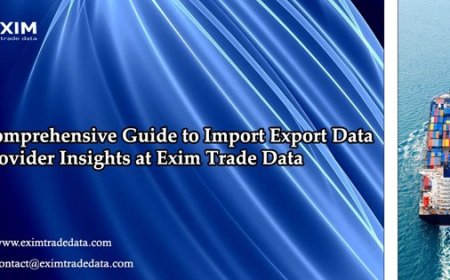Top dApp Development Frameworks You Should Know
Explore the top dApp development frameworks in 2025 including Truffle, Hardhat, Anchor for Solana, Sui Move for Sui blockchain, and more. Learn about dApp development cost, and how to hire dApp developers for your next Web3 project.

In the age of decentralized applications (dApps), developers and businesses are pivoting towards blockchain-based solutions to drive transparency, security, and user empowerment. Whether it's DeFi, NFTs, gaming, or supply chain, the world of dApps is continuously expanding, prompting businesses to seek expert dApp development services to bring their ideas to life. But the real question is: what are the top frameworks that developers rely on to build robust and scalable dApps?
Lets dive deep into the most popular dApp development frameworks in 2025 that are empowering developers and businesses to build decentralized ecosystems effectively.
1. Truffle Suite
Overview: Truffle Suite remains one of the most comprehensive frameworks for Ethereum-based dApp development. It offers a development environment, testing framework, and asset pipeline all under one roof.
Key Features:
-
Integrated smart contract compilation, linking, and deployment.
-
Automated testing with Chai and Mocha.
-
Built-in support for network management.
-
Development console for direct contract interaction.
Why Choose Truffle:
-
Strong community support.
-
Extensive documentation.
-
Easy integration with Ganache for personal blockchain instances.
Best For: Ethereum dApp development and quick prototyping.
2. Hardhat
Overview: Hardhat has emerged as a top alternative to Truffle, known for its flexibility and developer-friendly features for Ethereum smart contracts.
Key Features:
-
Local Ethereum network for fast testing.
-
Solidity debugging tools.
-
Customizable task runner.
-
Extensive plugin ecosystem.
Why Choose Hardhat:
-
Superior debugging capabilities.
-
Highly customizable for complex projects.
-
Compatibility with MetaMask and other Ethereum tools.
Best For: Developers looking for enhanced control over their development environment.
3. Brownie
Overview: Brownie is a Python-based framework for Ethereum smart contracts, ideal for Python developers venturing into blockchain.
Key Features:
-
Full support for Solidity and Vyper.
-
Pytest framework for unit testing.
-
Interactive console for testing and deployment.
-
Integrated with Infura and Etherscan APIs.
Why Choose Brownie:
-
Python-native environment.
-
Efficient for testing and automation.
-
Rich debugging tools.
Best For: Python developers focusing on DeFi and complex dApps.
4. Anchor (for Solana)
Overview: For developers working on Solana blockchain, Anchor is the go-to framework. As a Solana dApp Development Company would endorse, Anchor simplifies building Solana smart contracts (called Programs).
Key Features:
-
Rust-based framework.
-
Strong type safety with TypeScript bindings.
-
Simplified client-side development.
-
Built-in security patterns.
Why Choose Anchor:
-
Efficient and fast Solana program development.
-
Reduces boilerplate code.
-
Comprehensive documentation.
Best For: Solana dApp developers aiming for high-performance applications.
5. Substrate (for Polkadot)
Overview: Substrate is a modular blockchain framework developed by Parity Technologies, primarily for building blockchains that connect to the Polkadot network.
Key Features:
-
Highly modular and customizable.
-
Supports Rust programming language.
-
Built-in governance and consensus mechanisms.
-
Seamless integration with Polkadot parachains.
Why Choose Substrate:
-
Custom blockchain development with flexibility.
-
Active developer community.
-
Strong interoperability with the Polkadot ecosystem.
Best For: Building parachains and custom blockchains in the Polkadot network.
6. Moralis
Overview: Moralis offers a complete backend infrastructure for dApps, allowing developers to focus on the frontend while the backend scales automatically.
Key Features:
-
Real-time database for blockchain data.
-
Cross-chain support.
-
User authentication and session management.
-
Built-in APIs for NFT, DeFi, and tokens.
Why Choose Moralis:
-
Speeds up development time.
-
Reduces backend complexity.
-
Supports multiple blockchains.
Best For: Rapid prototyping and scalable multi-chain dApps.
7. Ember.js with Ethereum Libraries
Overview: For frontend-driven applications, combining Ember.js with Ethereum libraries like ethers.js or web3.js provides robust dApp interfaces.
Key Features:
-
Powerful frontend framework.
-
Comprehensive data management tools.
-
Easy integration with Ethereum nodes.
Why Choose Ember.js:
-
Ideal for single-page applications.
-
High performance and scalability.
-
Clear architecture and conventions.
Best For: dApps requiring rich, interactive user experiences.
8. Sui Move Framework (for Sui Blockchain)
Overview: With the growing popularity of the Sui blockchain, the Sui Move framework is gaining traction for creating scalable and secure dApps. If you are exploring sui blockchain for dApp development, this is your starting point.
Key Features:
-
Based on the Move language.
-
Strong asset ownership and transfer guarantees.
-
Designed for scalability and low-latency.
Why Choose Sui Move:
-
Enhanced security features.
-
Designed for Web3 scalability.
-
Efficient resource management.
Best For: Developers building gaming, DeFi, and social dApps on the Sui blockchain.
Key Considerations When Choosing a dApp Development Framework
-
Blockchain Platform: Choose the framework compatible with your target blockchain (Ethereum, Solana, Polkadot, Sui, etc.).
-
Programming Language: Frameworks are often tied to specific languages like Rust, Solidity, or Python.
-
Development Speed: Some frameworks like Moralis accelerate development with ready-to-use backend services.
-
Community Support: Opt for frameworks with active communities and robust documentation.
-
Security: Ensure the framework offers strong security tools and patterns.
dApp Development Cost: What to Expect
The dApp development cost varies widely based on the complexity, blockchain platform, and development framework chosen. On average:
-
Simple dApps: $20,000 - $50,000
-
Medium Complexity dApps: $50,000 - $100,000
-
Complex dApps (DeFi, Gaming): $100,000+
Other cost influencers include smart contract audits, backend infrastructure, frontend design, and ongoing maintenance.
The Future of dApp Development: Multi-Chain and Cross-Chain
As the blockchain space evolves, the demand for multi-chain and cross-chain dApps is rising. Developers and businesses now seek solutions that operate seamlessly across Ethereum, Solana, Sui, and Polkadot. This diversification not only broadens the user base but also enhances application resilience.
Conclusion: Partner With the Right Talent
Selecting the right framework is the first step, but building a successful dApp also demands skilled developers who can navigate these tools effectively. To bring your project to life, it's essential to hire dApp developers with expertise in specific blockchains and frameworks.
Additionally, for expert dApp development services, ensure your technology partner understands the nuances of various frameworks and can guide you through cost estimations and strategic development paths.
Whether youre interested in Ethereum with Truffle or Hardhat, Solana with Anchor, or exploring the Sui blockchain for dApp development, the right developers will ensure your project's success.
If youre seeking comprehensive development expertise, from blockchain strategy to deployment, our team is equipped to help you navigate the complexities of decentralized applications and deliver solutions that stand out in a competitive Web3 landscape.






































